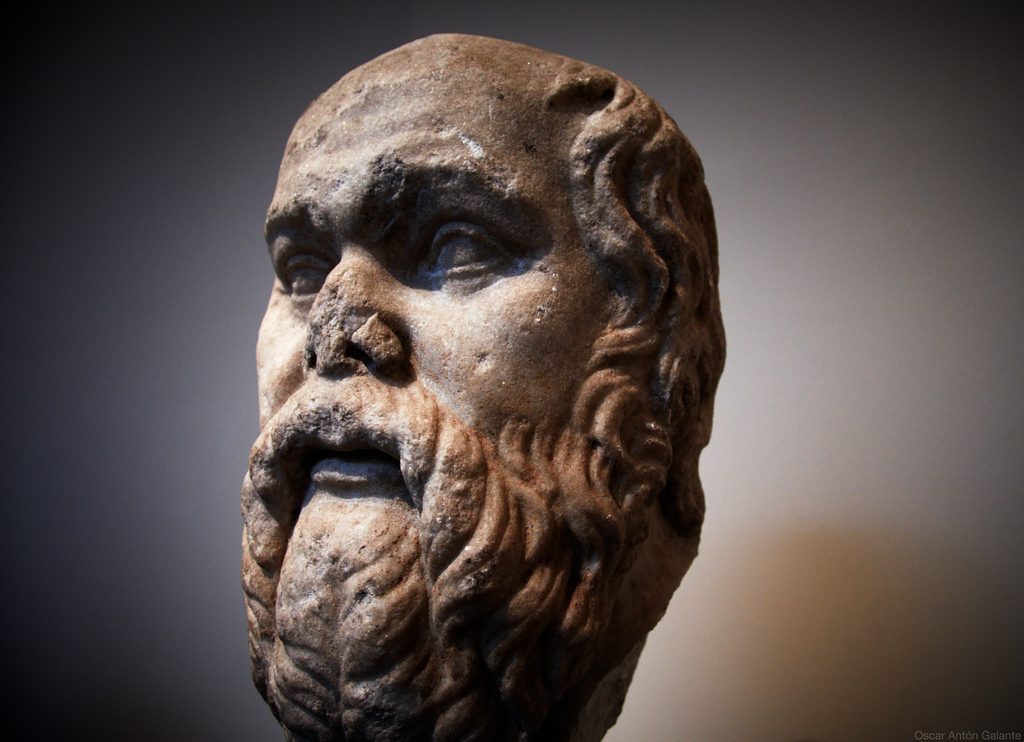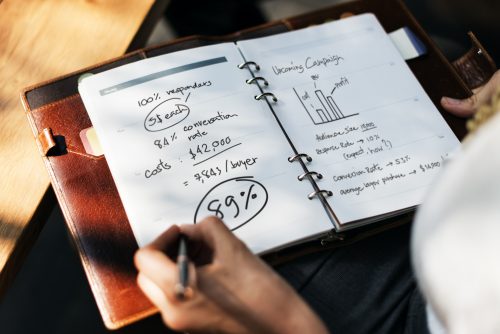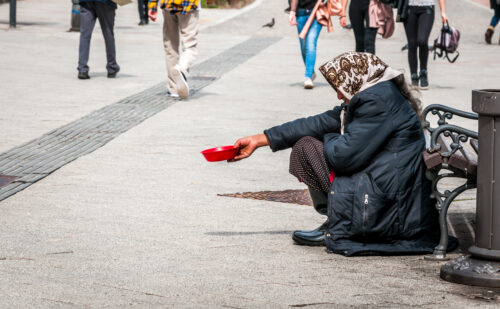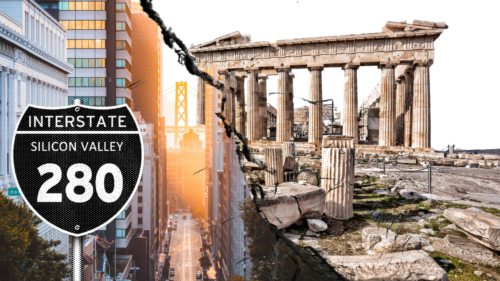How Socrates can help us understand our own democracy…
In a post-election column, Gizmodo UK blogger James O’Malley proposes that “Only Facebook Founder Mark Zuckerberg Can Save Us from Donald Trump.”
The argument goes something like this:
- Many of us live a big chunk of our lives on Facebook, having our conversations, interacting with people, and reading articles linked there.
- The algorithms by which Facebook chooses the content to put on our news feeds take their cues from the stuff we read and the people we talk to.
- The algorithms tend to reinforce our political biases, because the more we interact with friends like us and read articles by people like us, the more the algorithms give us like-minded material.
- We end up living in bubbles defined by our political allegiances because the algorithms don’t give us anything that might challenge our point of view.
- As a result, our critical thinking skills evaporate and we end up believing really wild things as long as they line up with our politics.
- Trump was elected because people believed really wild things as a result of living in their Facebook bubbles.
- In order to remedy this situation, Mark Zuckerberg needs to reprogram Facebook’s algorithms to occasionally give us articles that might challenge our point of view. That way, we can all begin to understand each other, appreciate other perspectives, and heal our divisions.
O’Malley acknowledges the limits of his solution; it wouldn’t solve everything. But perhaps the greater challenge is that he proposes a democratic solution to a democratic problem.
In Plato’s Republic, we read that the overriding characteristic of the democratic regime and the democratic person is freedom: “Each of them," says Socrates, "will arrange his own life in whatever manner pleases him” (557b). This looks like a great thing, until we come to the realization that our freedom is so great that it limits us. In practice, unbounded freedom leads to political laziness because freedom as a value trumps political responsibility: “In this city, there is no requirement to rule, even if you’re capable of it, or again to be ruled if you don’t want to be” (557e).
Moreover, because of its open-mindedness, the democratic city looks upon all ways of life equally, neither encouraging those who live frugally and simply, nor condemning those who call “moderation cowardice . . . insolence good breeding, anarchy freedom, extravagance magnificence, and shamelessness courage” (560d-e). As a result, we lose any criteria by which to judge our leaders: the democratic man gives “no thought to what someone was doing before he entered public life” and honors a person as long as “he tells them that he wishes the majority well” (558b-c).
In the end, the draw of absolute freedom is too great, and democratic people live a life driven by their immediate impulses and emotions rather than discipline. Far from being a good thing, this does not lead to the happiness of having all of our wishes met, but to enslavement and purposelessness: “And so he lives, always surrendering rule over himself to whichever desire comes along, as if it were chosen by lot . . . Sometimes he drinks heavily while listening to the flute; at other times, he drinks only water and is on a diet; sometimes he goes in for physical training; at other times, he’s idle and neglects everything” (561b, c-d).
Further, Socrates identifies three groups in the democratic city. The first is the “class of idlers,” which is the dominant class in a democracy. “Its fiercest members do all the talking and acting, while the rest settle near the speaker’s platform and buzz and refuse to tolerate the opposition of another speaker, so that, under a democratic constitution . . . this class manages everything” (564c-e).
The second is the class of money makers. They succeed in getting rich, because of all the people furiously pursuing wealth, they are the most organized. Finally, there is the largest class, “the people,” who “work with their own hands” and “take no part in politics,” but “when they are assembled, they are the largest and most powerful class in a democracy” (565a). This last group rarely assembles, though, “unless they get a share of honey.” Not surprisingly, the money makers are the ones most able to provide that honey.
The interplay and conflict between these groups eventually leads to the establishment of a tyrant: “Aren’t the people always in the habit of setting up one man as their special champion, nurturing him and making him great?” (565c).
If all of this sounds familiar, it’s because Socrates was right. Our own democratic age looks a lot like what he described 2400 years ago.
If we translate O’Malley’s Zuckerberg solution into Socrates' framework, it goes something like this:
We, the people (the third class in a democracy), who spend our days driven by impulses and desires, one day drinking, one day exercising, one day idle, one day getting worked up about the latest article we read on Facebook, who rarely assemble with each other in person to discuss the problems in our society and to exercise our political responsibilities to face them, who don’t pay too much attention to the character of our leaders and use our freedom unwisely to listen to the class of idlers who do not tolerate any opposition to their point of view, can solve our problems by asking Zuckerberg, the money maker in Socrates' democracy, to feed us new “honey,” that is, vary up the algorithms by which we receive our daily fare, to help us occasionally listen to different idlers advocating different versions of extravagance within the same paradigm of directionless freedom.
So O’Malley’s solution only proposes a new twist to the tendencies of a democratic society, it doesn’t actively combat those tendencies. He identifies real problems. But to avoid them, we must rather actively work against the flaws present in the democratic soul: Ignore the class of idlers; refuse honey from the money makers; recognize that unbounded freedom is harmful; resist the temptation to give in to extravagance and to live lives ruled by our impulses. We don't need to be enemies of democracy to acknowledge where it's flaws are and how to amend them. In fact, becoming a less democratic people would make our democracy better.
Photo credit: oshkar via Visualhunt.com / CC BY-NC-ND






